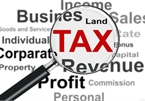 |
|
Apple and Google have been on top of the pile for over a decade
|
Local users have been paying sizable amounts of money to acquire and use applications offered on either Apple’s Appstore or Google Play. However, as of now, local tax authorities have been barely able to touch these transactions.
On both platforms, smartphone applications such as games and office tools are commonly offered for up to $20 in the Vietnamese market. According to data published by local advertisement company Adsota, 43.7 million people use smartphones, roughly 45 per cent of Vietnam’s population.
Apple and Google have been said to both take advantage of software designers in Vietnam. Under the flourishment of technology in recent years, many young Vietnamese have been earning their living by designing applications and offering them on one or both platforms for sale.
According to Hanoi Department of Taxation, the capital is home to about 1,000 people earning a living from online platforms with a total turnover of about VND4.8 trillion ($208 million). Meanwhile, Ho Chi Minh City Department of Taxation in March collected VND14 billion ($610,000) in tax from 89 organisations and individuals running online businesses.
Apple and Google both launched their app markets in 2008 in Vietnam. Since then, they have been rapidly evolving and represent the common knot linking independent developers and millions of smartphone users. Both groups use different monetisation models depending on the developer, leaving them with around 70-85 per cent of an app’s subscription fee or price.
However, none of the groups’ profits have so far been taxed in Vietnam. Moreover, local users can purchase applications on either app market by using e-wallets such as MoMo for their payments. Thus, e-wallet services are also responsible for transferring local users’ payments to these tech giants based outside of the country. This leaves the question whether services like MoMo must take responsibility for tax within the nation.
On the flip side, under the new Law on Tax Administration that will come into force on July 1, Google and Apple will not be able to ignore their tax obligations in Vietnam.
Specifically, Article 42 outlines that all cross-border businesses that are earning money from Vietnam must register and pay their tax here. The new law means that overseas service providers will have to directly, or through third parties, perform their tax obligations despite having no representative offices in the nation.
The General Department of Taxation is planning to publish all tax registration of companies on its official website. Once a company neglects its tax duty, the authority will automatically charge their tax from the bank accounts of partners like MoMo. Thereby, the law also stipulates regulations to allow banks to collect taxes from the accounts. Accordingly, Clause 27 outlines that banks must perform the tax obligations of cross-border service providers whose incomes are incurred from Vietnam.
According to Le Xuan Truong, head of the Faculty of Taxation under the Academy of Finance, charging taxes from overseas platforms such as Google and Apple will be possible because of the evolution of local technologies and the fresh law that is more detailed than its previous incarnations. “We can charge taxes from the platforms. However, the problem now is there are no specific taxes for these overseas companies,” Truong said. “Currently, local tax authorities are researching and completing specific tax types for these cases.”
Nguyen The Trung, director of local tech company DTT Group, told VIR that the government is considering applying blockchain in tax management. With this, blockchain would favour checking every transaction as soon as it takes place, and it may force platforms like Google and Apple to pay tax in Vietnam. “Despite relatively high associated costs for the usage of this technology, eventually blockchain will not be difficult to use as costs will reduce once demand grows,” Trung said. VIR
Van Anh

Vietnamese businesses burdened with taxes, FIEs at ease with tax exemptions
Studies have found that Vietnam’s taxation system offers many incentives to foreign invested enterprises (FIEs), but puts an increasingly heavy burden on Vietnamese enterprises and people.

VEPR urges tax policies for FDI to be revised to prevent tax avoidance and evasion
Vietnam needs to revise tax and land policies for foreign direct investment (FDI) companies to ensure a level playing field for businesses.